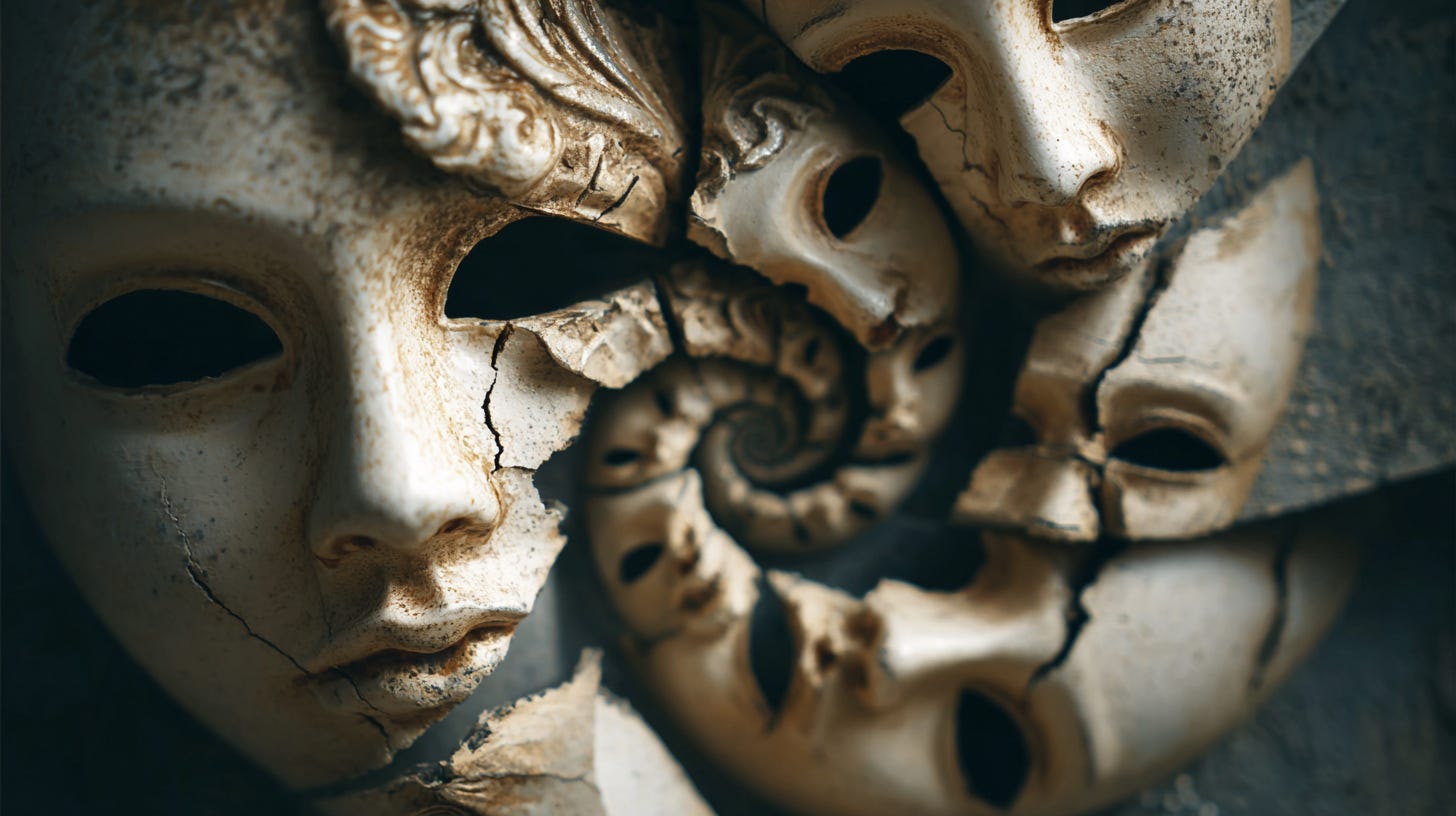Growing Up With the Wrong Manual
A 54-Year-Old's Guide to Breaking Cycles Without Making Excuses
Why late-diagnosed leaders need to own their shit while understanding their wiring
Twenty-something years ago, someone took a gamble on me early in my career. They became a mentor, an influence, someone whose advice I can still recall word-for-word today. During one of our conversations, they told me two things that would echo in my head for decades:
"Learn the power of no."
"You're too honest."
At the time, I had no fucking clue what they meant. I filed it away as good advice I'd probably never follow and went on with my life, saying yes to everything and telling people exactly what I thought. It took a neurodiversity coaching certification at 54 and an ADHD diagnosis to finally understand what they saw in me that I couldn't see in myself.
That mentor was essentially telling me I was operating with the wrong manual for my brain. The problem? I didn't even know there were different manuals.
The Brutal Education of the ‘70s and ‘80s
If you grew up neurodivergent in the 70s and 80s like I did, you know what brutal looks like. Being different meant being called a "retard" or "gay" - words I'm ashamed to admit I used myself, even while knowing I felt different from everyone else. The survival strategy was simple: don't be the target.
So I became a chameleon. I put myself in visible roles - debating team, rugby, cricket, public speaking - not because I wanted attention, but because I could control how I stood out rather than letting my differences make me a target. I was hiding in plain sight.

And yes, I became a bully sometimes. There's no excuse for that. None. I carry shame and guilt for the way I treated certain people at school, but I can also see it now as masking and performance - a desperate attempt to protect who I was underneath it all. Understanding the context doesn't erase the impact, but it helps explain how oppressive systems force people to perpetuate the very harm they're trying to escape.
The noise in my head never stopped. My academic record started strong but tanked in later years. Alcohol grabbed me at 15, and shit went south from there until my late 20s. I was trying to medicate a brain I didn't understand with the only tools available to a teenager in the 80s.
But here's what's important: I had a small group of loyal friends who saw something in me that maybe I couldn't see in myself. They saw someone authentic who got them, and those friendships have stood the test of time. Even when I was performing for everyone else, some people knew the real me.
The Performance Years: Master of Yes
Fast forward through decades of operating with the wrong manual. I became a master people-pleaser, saying yes to shit I could not deal with effectively. What I didn't understand then was that this pattern was driven by dopamine-seeking behaviour - my ADHD brain craving the neurochemical hit that came from taking on new challenges and earning approval.
The cycle was predictable and brutal:
Say yes to impossible commitments (dopamine hit)
Set impossibly high standards for myself (seeking external validation)
Become overwhelmed and crash (shame spiral)
I tried to "fix it" all by myself because asking for help meant admitting weakness.
This pattern compounded recently when burnout snuck the fuck up on me and crashed hard and fast. Actually, that's not quite right. I probably saw it coming 18 months ago, but I chose not to do something about it because I was convinced I could "handle it" and no one would ever need to know.
"I don't need help because help is weakness" - that was the story running in my head, something I still haven't properly learned how to address.
The Reckoning: Finding the Right Manual
Pursuing a neurodiversity coaching certification has been eye-opening in unexpected ways. Learning about the different times we've experienced regarding mental health and disabilities like ADHD has helped me understand the brutal environment I grew up in wasn't just tough - it was systematically harmful to neurodivergent kids.
My ADHD diagnosis at 52 finally provided the manual I needed. That mentor's advice about learning "the power of no" and being "too honest" suddenly made perfect sense. They saw patterns in me decades before I could see them myself:
The people-pleasing was a dopamine-seeking behaviour
The "too honest" feedback was my ADHD brain's inability to filter thoughts through social expectations
The inability to say no was tied to my deep, unsettling need to feel valued and contribute
These weren't character flaws - they were features of a neurodivergent brain operating without proper instructions.
The New Manual: Accountability Without Excuses
Here's where this gets important: Understanding your wiring doesn't excuse your choices.
Yes, I grew up with the wrong manual. Yes, the 70s and 80s were brutal for anyone different. Yes, my people-pleasing and boundary issues are connected to how my ADHD brain seeks dopamine and validation.
And yes, I'm still accountable for every choice I made, including the times I bullied others to protect myself.
This is the balance that matters: You can understand your context while owning your impact. You can work on being better while acknowledging the harm you've caused. You can advocate for neurodivergent understanding while refusing to use your differences as an excuse to be a shit head.
Environments and life can be brutal and will continue to be so. Don't make it more brutal for yourself and others by making excuses. Take action on your feelings and become a better person. Period.
What I'd Tell That 15-Year-Old
If I could go back and talk to that kid who was drowning in noise, self-medicating with alcohol, and hurting others to avoid being hurt, here's what I'd say:
It's safe to be different. You shouldn't lose your voice to please someone else or ignore the way you feel. Help and support are available, and it's not weak to ask for help.
Don't try to be someone you think everyone else thinks you should be.
But also: Don't use your differences as an excuse to be a problem for society to deal with or pay for.
The right manual exists. It's just going to take you 40-odd years to find it.
Keep reading with a 7-day free trial
Subscribe to Digital Leadership Academy to keep reading this post and get 7 days of free access to the full post archives.


